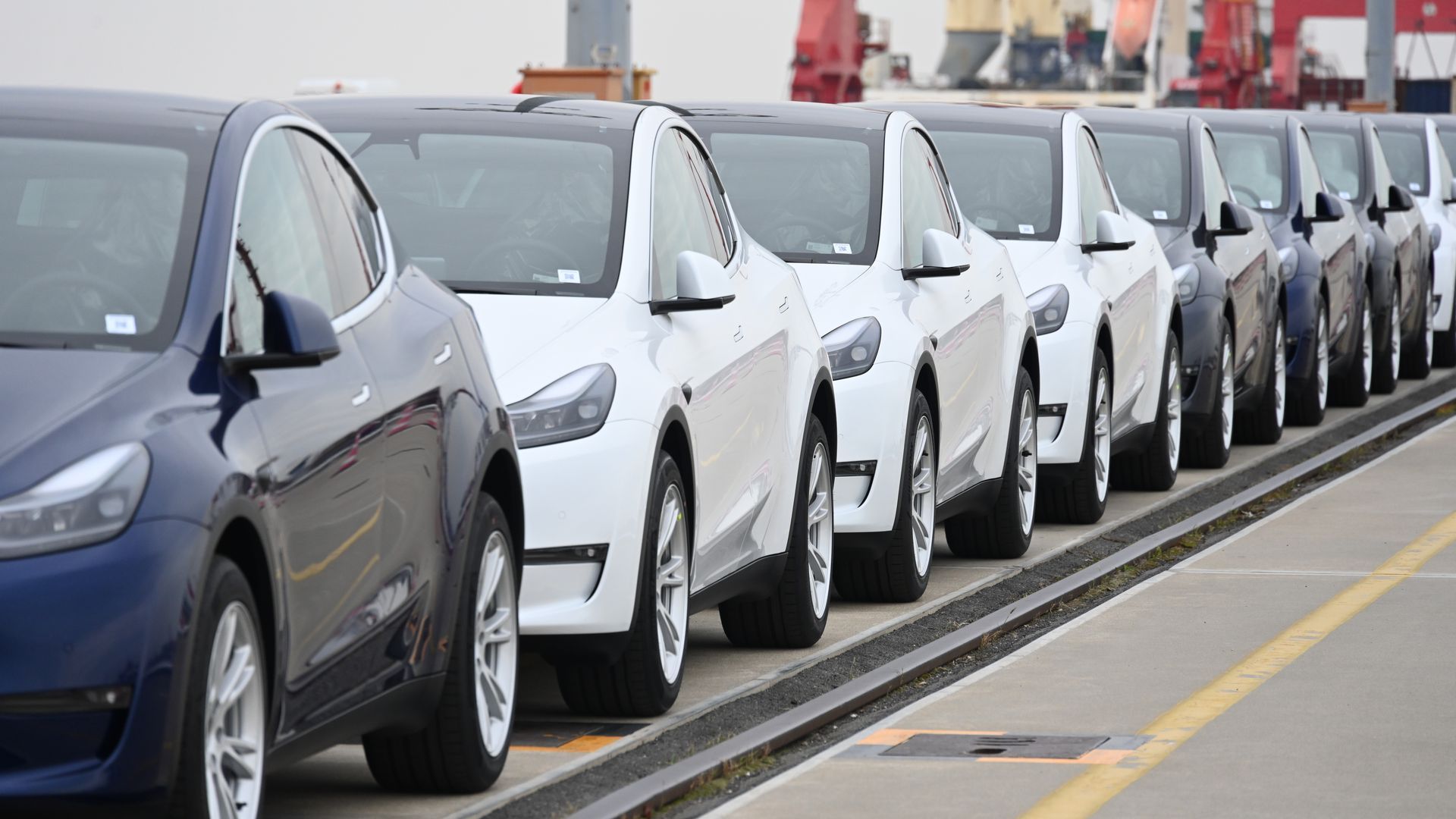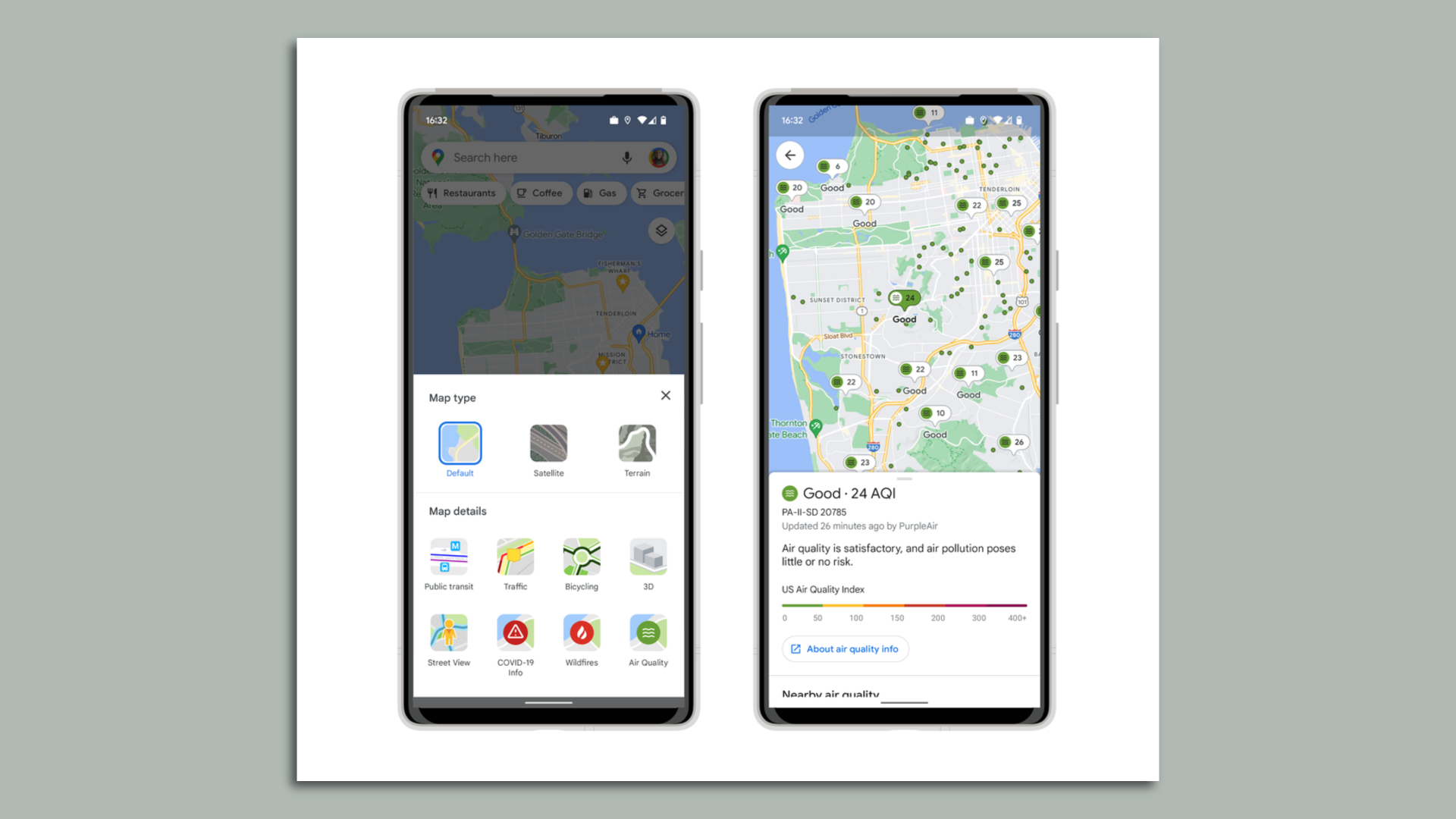| | | | | | | | | | | Axios What's Next | | By Joann Muller, Jennifer A. Kingson and Alex Fitzpatrick · Jun 10, 2022 | | Alex here. As a private pilot and avgeek, I'm deeply jealous of Joann's trip this week to learn more about the latest in next-gen transportation tech — and it sounds like she's coming around on the whole "flying taxi" thing. Today's Smart Brevity count: 1,092 words ... 4 minutes. | | | | | | 1 big thing: Transportation's future is arriving |  | | | Illustration: Sarah Grillo/Axios | | | | Once far-fetched dreams for the future of transportation — delivery drones! driverless trucks! air taxis! — are starting to become reality, Joann Muller reports, thanks to huge capital investments and technology advancements. Why it matters: We're still in the early stages of a historic transformation in the movement of people and goods. But some of the pioneers in that climate-driven revolution are notching unmistakable progress in their quest to reinvent mobility. Driving the news: Axios got to be a fly on the wall this week at UP.Summit, an exclusive confab of 250 transportation entrepreneurs, corporate executives and wealthy investors in Bentonville, Arkansas. - Their shared mission is to make transportation cleaner, faster, safer and cheaper — whether it's on the ground, in the air, at sea or in space.
Just a few of the things I saw or learned about: - Germany's Volocopter, an air taxi developer, said its new VoloConnect aircraft completed its first flight in May.
- Dronemaker Zipline unveiled acoustic-based detection and avoidance technology it says could speed the rollout of autonomous drone deliveries.
- Connect Airlines, a new private jet operator, said it plans to convert 75 regional airplanes to hydrogen in partnership with Universal Hydrogen Co.
- A company called Airspeeder is even launching a electric flying car racing series in an effort to accelerate the tech's development.
My thought bubble: I've long been skeptical about drone delivery and flying cars. But my interviews this week with startups, big company CEOs and venture capitalists have me reconsidering that stance. - "This is real. We're done with the what-ifs," Adam Woodworth, CEO of Alphabet's Wing drone delivery business, told the group. "This is a real service, and we're ready to scale this out across the planet."
- "Things that were crazy schemes 10 years ago are really happening," aviation veteran John Langford told me. His next-gen aerospace company, Electra.aero, is among those designing cleaner aircraft for a new era of advanced air mobility.
- "I've been doing this for 30 years," Alaska Airlines CEO Ben Minicucci told me. "This thing is transforming at a rapid rate in front of my eyes. Four years ago, you wouldn't have seen that." (His company's venture arm, Alaska Star Ventures, is backing emerging technologies like hydrogen aircraft.)
Reality check: While some ideas are maturing toward commercialization, most have a long way to go. - Many of the people I spoke with acknowledged that regulatory hurdles remain and access to capital is tightening as economic uncertainty grows.
The bottom line: A visionary's crazy idea is often nothing more than a science project until like-minded investors show up with the money to commercialize it. Even then, it can take a decade — or two or three — for revolutionary ideas to become true innovations. Share this story. |     | | | | | | 2. Nice job offer you have there... |  | | | Illustration: Annelise Capossela/Axios | | | | Several big companies are suddenly mass-rescinding job offers they've already made to prospective employees, Axios' Emily Peck reports. - It's a surprising trend, given that it's coming at a time of record unemployment and labor shortages — when you'd expect workers to hold more power.
- The belt-tightening practice was last widely seen during the 2008 financial crisis.
State of play: Execs increasingly view canceling offers as a feasible strategy, says Erin Grau, co-founder of Charter, a media and services company focused on the future of work. - HR leaders see it as a cost-cutting measure, she says: "A lot of people who never thought this was an option, it has now become an option."
Besides being disappointing and frustrating for those suddenly without jobs, it's also a bad look for companies. - "It's totally embarrassing and going to damage your employer brand long term, eroding trust with candidates and current employees too," Grau says.
Read the rest. |     | | | | | | 3. Xbox, minus the box |  | | | A screenshot of the Xbox TV app interface. Photo courtesy Microsoft | | | | Microsoft's vision of a future where gamers don't need expensive consoles or computers to play the latest hits is taking a step forward with a new game-streaming TV app, Axios' Stephen Totilo reports. Why it matters: Microsoft is trying to break down barriers for people who can't get their hands on expensive, sometimes hard-to-find consoles — potentially adding new customers in the process. Details: Samsung's latest TVs will support the new Xbox app starting June 30. How it works: As with similar tech from competitors Sony, Google and Amazon, players won't have physical access to the games or the machines running them. - Gameplay will be streamed to users' TVs via remote servers, which will also receive and process players' controller inputs.
- Users will need a $15/month Game Pass Ultimate subscription.
Yes, but: Game-streaming platforms work best with relatively fast internet connections — and struggle on slower ones. Read the rest. |     | | | | | | A message from Axios | | The current state of VC, PE and M&A | | |  | | | | Hear directly from 10 of the smartest journalists covering the VC, PE and M&A spaces every single day. Why it matters: With decades of combined experience, few other reporters are better equipped to unpack and forecast the current dealmaking landscape. Download the report. | | | | | | 4. More Tesla troubles |  | | | Tesla Model Y and Model 3 vehicles at a dock in Shanghai, China, in May 2022. Photo: Shen Chunchen/VCG via Getty Images | | | | The National Highway Traffic Safety Administration has upgraded its investigation into Tesla's Autopilot feature, Axios' Jacob Knutson reports. Why it matters: It's the regulator's biggest step yet as it scrutinizes Tesla's partial automation tech amid reports of collisions, unexpected braking and critiques that it was launched before it was ready. The details: NHTSA's preliminary probe, opened last August, has been expanded to an engineering analysis. - That's a required step before the regulator decides to issue a recall.
- The investigation will also be expanded to encompass an estimated 830,000 Tesla vehicles, up from around 765,000.
The big picture: NHTSA has recently opened several different investigations into Tesla's driving features. - In part, it's probing reports of unexpected braking in some Tesla vehicles while in Autopilot and driving at highway speeds.
Alex's thought bubble: This is quickly becoming a major headache for Tesla at a time when its CEO, Elon Musk, is focusing his attention on acquiring Twitter — a deal that looks shakier by the day. Share this story. |     | | | | | | 5. A breath of fresh air |  | | | Google Maps' new air quality view. Photo courtesy Google | | | | Google Maps' iPhone and Android apps can now show local air quality data, Alex Fitzpatrick reports. - The feature is meant to help users "make more-informed decisions about whether it's safe to go on a hike or other outdoor adventures," reads a blog post announcing the feature.
Details: Google Maps is using data from the Environmental Protection Agency and other government sources. - It's also pulling information from PurpleAir, a startup that makes low-cost air quality sensors that people can install outside their homes to help researchers collect hyperlocal data.
Read the manual: "To add the air quality layer to your map, simply tap on the button in the top right corner of your screen, then select Air Quality under Map details," per Google. Between the lines: As wildfire season lengthens and intensifies, air quality is an increasingly vital part of many people's everyday weather checks. - You can learn more about the Air Quality Index — and how to use it in your daily life — here.
|     | | | | | | A message from Axios | | The current state of VC, PE and M&A | | |  | | | | Hear directly from 10 of the smartest journalists covering the VC, PE and M&A spaces every single day. Why it matters: With decades of combined experience, few other reporters are better equipped to unpack and forecast the current dealmaking landscape. Download the report. | | | | Was this email forwarded to you? Get your daily dose of What's Next magic by signing up for our free newsletter here. |  | It's called Smart Brevity®. Over 200 orgs use it — in a tool called Axios HQ — to drive productivity with clearer workplace communications. | | | | | | Axios thanks our partners for supporting our newsletters. If you're interested in advertising, learn more here.
Sponsorship has no influence on editorial content. Axios, 3100 Clarendon Blvd, Suite 1300, Arlington VA 22201 | | | You received this email because you signed up for newsletters from Axios.
Change your preferences or unsubscribe here. | | | Was this email forwarded to you?
Sign up now to get Axios in your inbox. | | | | Follow Axios on social media:    | | | | | |










No comments:
Post a Comment